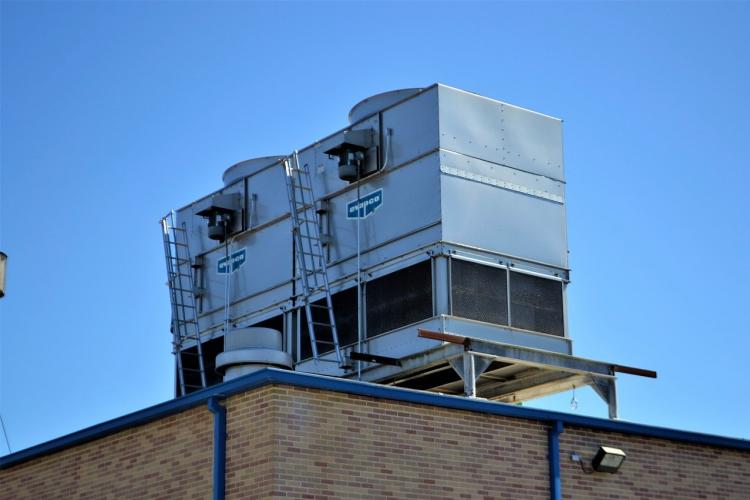
MEEA is proud to announce a partnership with the Energy Association of Iowa Schools (EAIS) and Southwestern Community College (SWCC) to pilot a two-year apprenticeship for high school students. The Building Operator Certification (BOC®) training curriculum will be utilized as part of the classroom component during the first year and a half of the program.
The Project
Students will be paired with a facility maintenance professional working in their school who will serve as a mentor, guiding the student through training. The student will gain hands-on facility maintenance experience, earn college credit through SWCC and—along with the facility manager—will be eligible to earn a Building Operator Certification Training Certificate of Completion upon conclusion of the apprenticeship.
The students and mentors will work together for one hour every weekday; they will attend classes a few days a week and conduct facility maintenance activities on the other days. To accommodate this schedule, MEEA and participating BOC instructors will provide a tailored version of the BOC training curriculum that covers topics such as HVAC control fundamentals and energy efficiency opportunities for HVAC systems, benchmarking with ENERGY STAR Portfolio Manager, efficient lighting fundamentals, indoor air quality control and common opportunities for operational improvement of building systems. Many of these courses will be presented as a hybrid of classroom learning and experiential learning.
The Goal
The development of this pilot was motivated by the overarching concern regarding the gap in the energy workforce, and the opportunity to address it at a local level. The energy efficiency sector is reportedly the nation’s largest employer of the energy industry (E2 Jobs Report, 2020). Therefore, the prospect of new, skilled workers entering the energy efficiency workforce is and will continue to be a critical aspect of the greater industry’s growth. With advancing technologies on the rise, finding skilled workers is consistently reported as a challenge by large-scale employers. 79% of energy-related employers reported hiring difficulty due to applicants’ insufficient training, skills and experience, all within a small and competitive applicant pool (NASEO, 2020). This workforce gap will only continue to widen as four-year degrees are commonly presented as the preferential pathway for students after high school. Presenting high school students with the prospect of a promising career in energy efficiency, with wages averaging over 30% higher than national median wages (E2 Jobs Report, 2020), can potentially produce significant growth in the workforce, while providing these students with local, well-paying jobs and the possibility of upward mobility.
The overarching goal of the Building Operator Pathway program is to offer a career-focused learning opportunity, as well as encourage professional development for students in rural and underserved areas of Iowa. In Iowa, the target area of this project, schools and businesses have reportedly experienced difficulty in hiring building operators with energy efficiency expertise. According to a study done by EAIS, 90% of school respondents who hired within the last five years had only 1-5 well-qualified job candidates, and 100% of business/industry respondents reported only 1-5 well-qualified job candidates, of which none were extremely knowledgeable about HVAC and energy efficiency. This program is being developed in efforts to build a pipeline of skilled workers with energy efficiency expertise for Iowa’s workforce, who can fulfill already-existing jobs. Upon completion of the program, students will be equipped with the resources to either continue their education at a local community college or enter the workforce with the knowledge and experience that this apprenticeship provides.
In early 2021, EAIS convened a well-rounded advisory committee of school district superintendents and facility managers to assist with the logistics, development and execution of this program, as well as provide suggestions and share their expertise. With the apprenticeships set to begin in late August, MEEA’s programs team is excited to see the project come to fruition later this year.
The Building Operator Pathway project is being funded by the Iowa Energy Center.